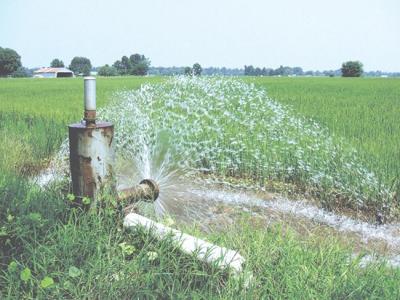Impacts of Limiting Unsustainable Water Use in the United States
Restrictions on groundwater pumping and adjustments to water pricing are potential response strategies to enhance the sustainable use of water. However, little is known about the impacts of such sustainability strategies. This study explores how limiting the use of nonrenewable water resources in the United States may affect the agricultural sector. It finds that as nonrenewable groundwater use for irrigation is increasingly restricted, agricultural production in western states shifts eastward to meet food and feed demands. Additionally, under a complete restriction of nonrenewable groundwater, basins in the western United States may face up to a 25% revenue loss from agricultural production through the end of the century.
This research explored the implications of constraining nonrenewable groundwater use, mimicking a wide range of potential real-world governance measures, to show that the adoption of sustainable groundwater usage measures could significantly affect agricultural revenue in the southwestern United States. At the same time, such measures could vastly improve sustainable water use within the United States. Water-stressed regions across the United States are actively planning how to limit their unsustainable water use. This study is one of the first to broadly explore the implications of such measures, opening the door to further explorations of sustainable water use measures in the United States at higher resolutions.
Governance measures, such as restrictions on groundwater pumping and adjustments to sectoral water pricing, have been suggested as strategies to curtail recent increases in groundwater pumping and enhance sustainable water use. However, little is known about the impacts of these types of sustainability strategies. This study investigates the implications of such measures, with the United States as an example. Using the Global Change Analysis Model with state-level details in the United States demonstrates that combining these two governance measures can drastically alter U.S. agricultural production. Agricultural production in the Southwest will be reduced by over 25%, resulting in revenue losses of over $50 billion by the end of the century. Production and revenue increases in river basins on the East Coast compensate for much of this loss. Implementing future sustainable water governance measures that limit access to nonrenewable groundwater may cause revenue losses in the southwestern United States.

